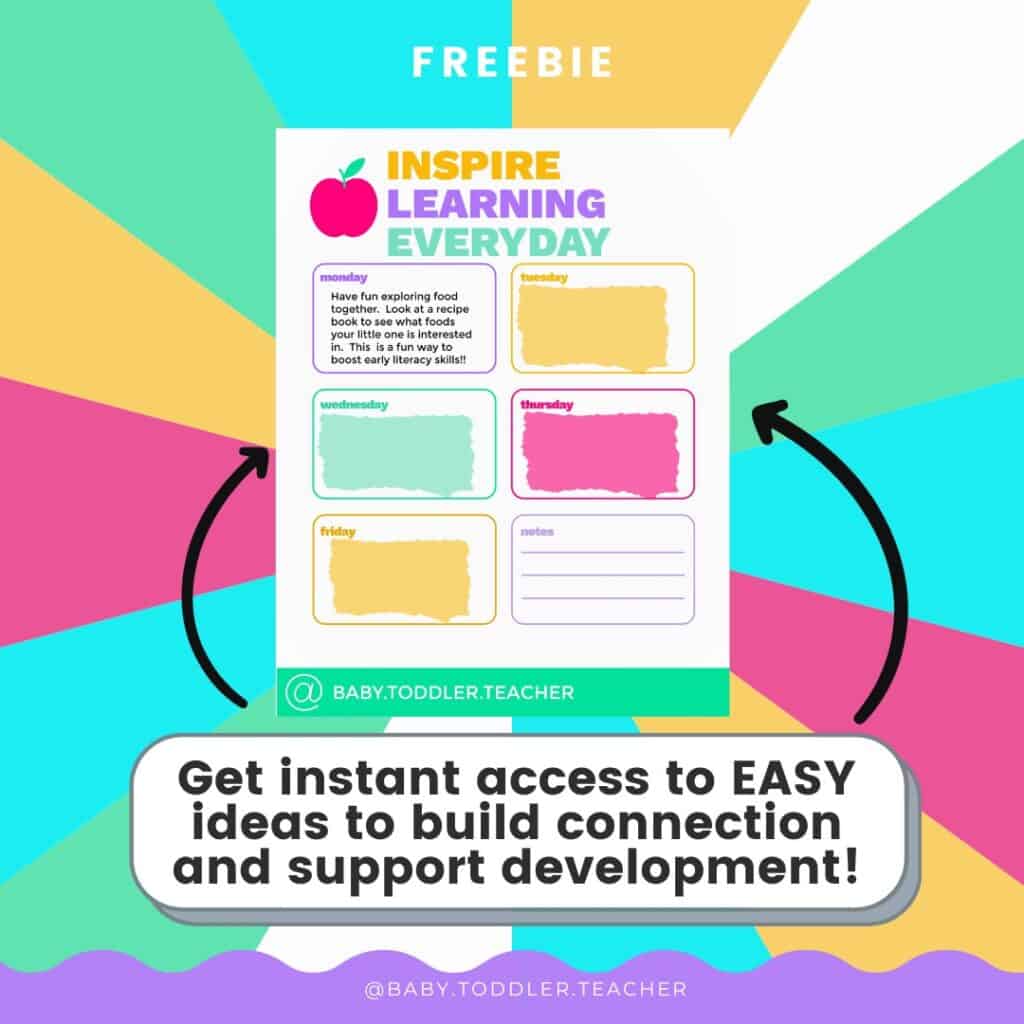It is never too early to start developing emotional intelligence and social skills.
In fact, the earlier you start, the better!
This blog post will give you information about what to expect when it comes to toddler development in terms of social and emotional skills, as well as ways they can encourage this important growth through daily routines and play activities each day.
Join me now for a discussion on how to raise emotionally intelligent toddlers!
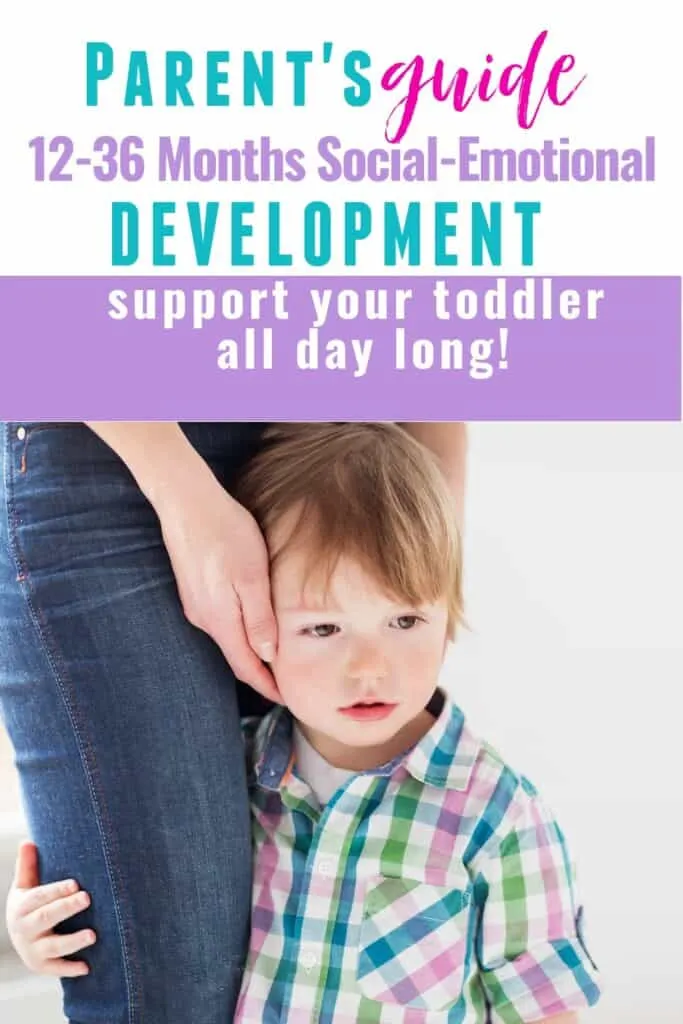
Do you have concerns about your child’s social-emotional development?
Keep in mind that every child is different and will develop at their own pace!
As we look at different emotional milestones keep in mind that there is a wide range when it comes to what typical development looks like and you should not compare your child to another child because that is not helpful!
If you ever have concerns about your child meeting developmental milestones it is important to contact early intervention for a screening or evaluation.
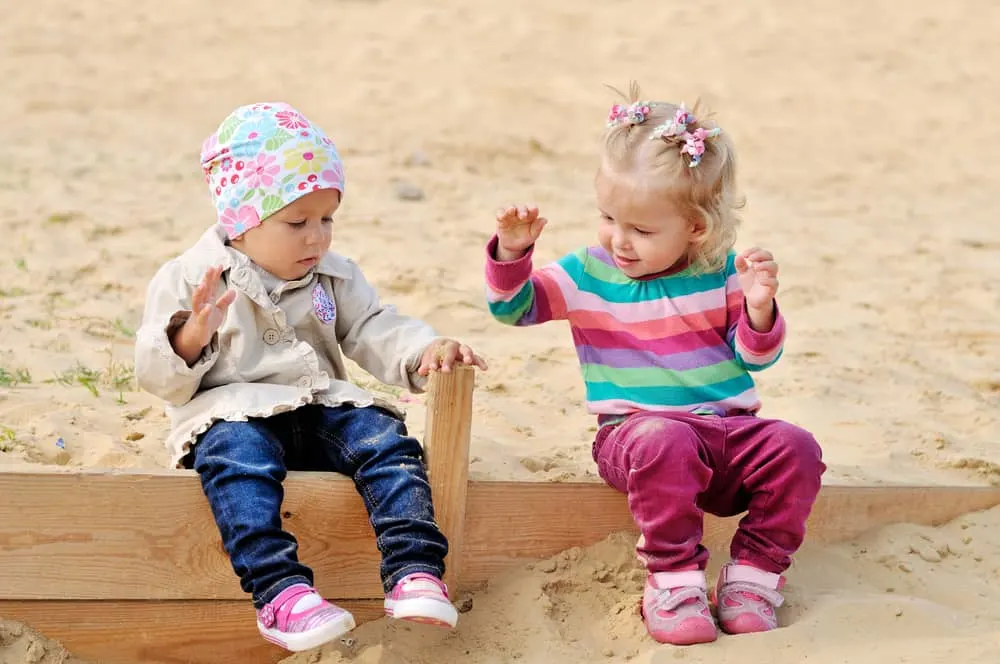
Toddler Emotional Development 12-18 Month
Does your little one seem to be very aware of strangers?
It’s not uncommon for a 12-18-month-old toddler to be wary of new people.
In fact, toddlers are notorious for displaying this type of behavior!
Once again this may look very different from one child to the next.
Even when I think about my own two kiddos, I had one that showed more stranger anxiety while the other one did not seem to have as much.
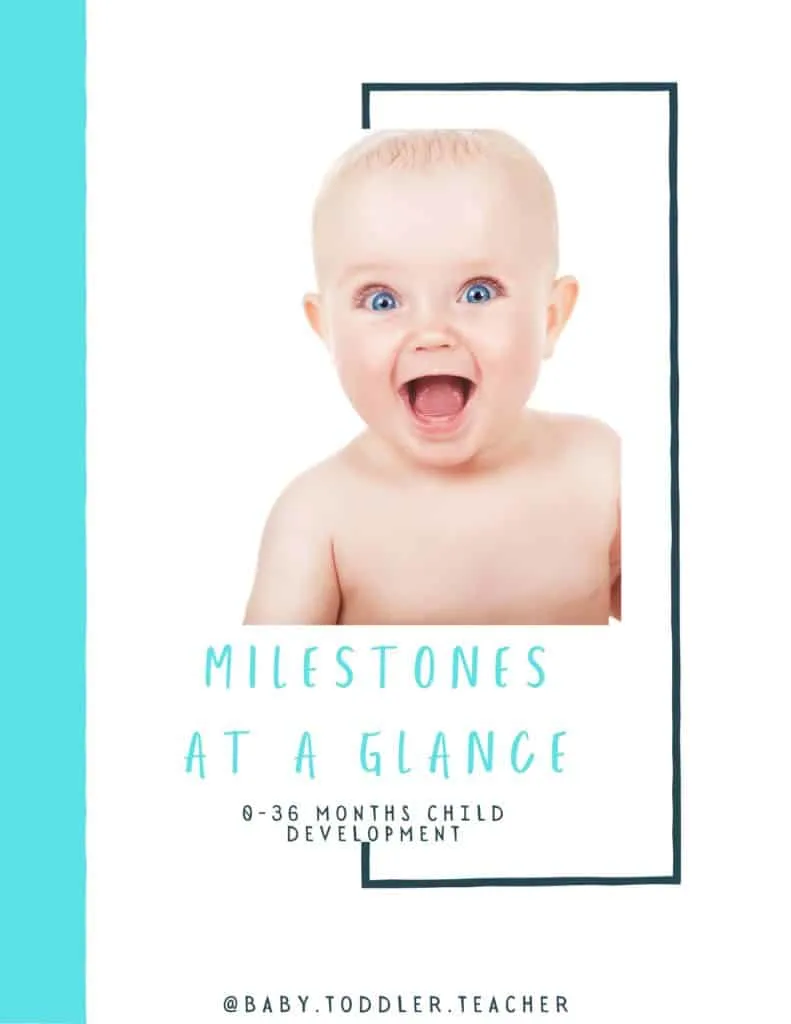
Grab your FREE Milestone Guide HERE.
Separation anxiety can also be strong during this time.
Even though your toddler is just starting to explore the world, they understand that you’re a constant in their life and they may not like it when you leave them for even a short period of time.
They may also start to develop fear in some situations as well such as new places.
Temper tantrums start to emerge at this age and they may be happening quite frequently!
You can grab my free tantrum toolkit here which will give you some strategies when it comes to tantrums.
Your little one may also be starting to show some preference towards certain toys and may have “favorites” that they want to bring everywhere.
Toddler Emotional Development 18-24 Months
Temper tantrums continue for your child and they may still have a fear of strangers.
Your child’s play may move towards including more “make-believe” play such as pretending to feed a baby doll or acting out a scene from their favorite show.
As they start to have more of an understanding of the world, your toddler may be able to express emotions such as anger and sadness in ways that seem very intense for them since it’s new territory.
They may show you things that they are interested in or want to play with by pointing or bringing you to the items.
Your toddler may start showing affection to familiar people and start interacting with peers using gestures or words.
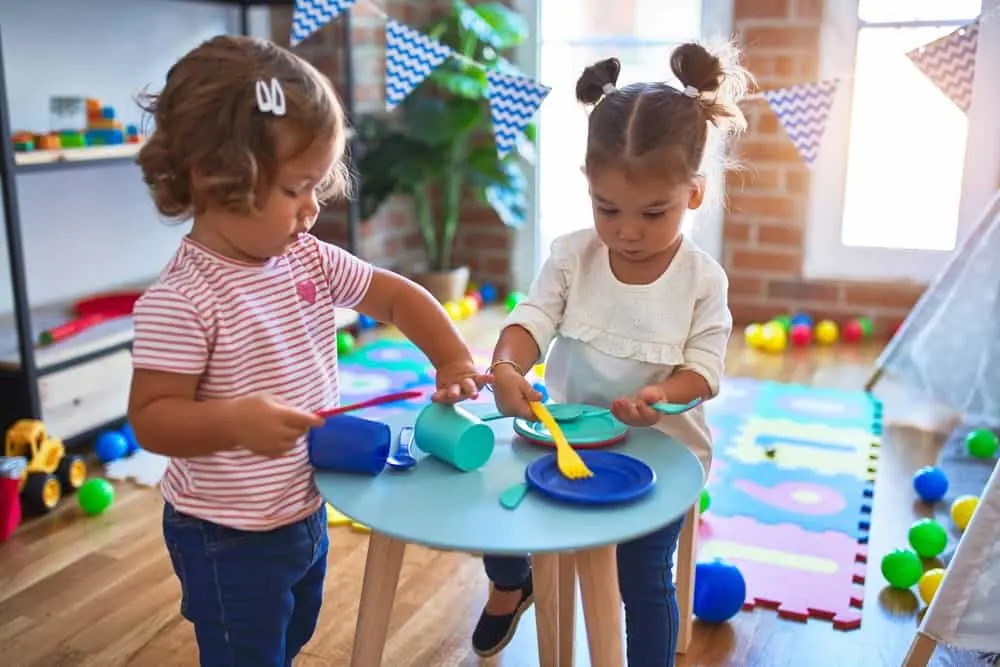
Toddler Emotional Development 24-36 Months
Have you noticed your toddler imitating everything you do?
You may be noticing your toddler copying sounds, words, and movements.
Your child is now able to understand the world as well as some of their own feelings!
This understanding will help them start to express themselves in ways that are different from before too.
That’s why you might notice behaviors such as anger or sadness seem much more intense
Toddlers also start to really have the desire to be independent at this age as well.
You may notice your toddler testing the boundaries of what they can do and exploring on their own.
By this age, toddlers will start to show more interest in playing with others than before too.
They’ll want to interact more but still, be very wary at first because it’s a new experience for them!
They’re learning how interactions work from observing you so keep that in mind next time you play together!
Toddlers also enjoy imitating other people, which might lead to pretend play.
Change may be hard for children at this age so having consistent routines can be helpful.
You may notice your child also struggles when it is time to transition from one activity to the next as well especially if it is something they prefer to do.
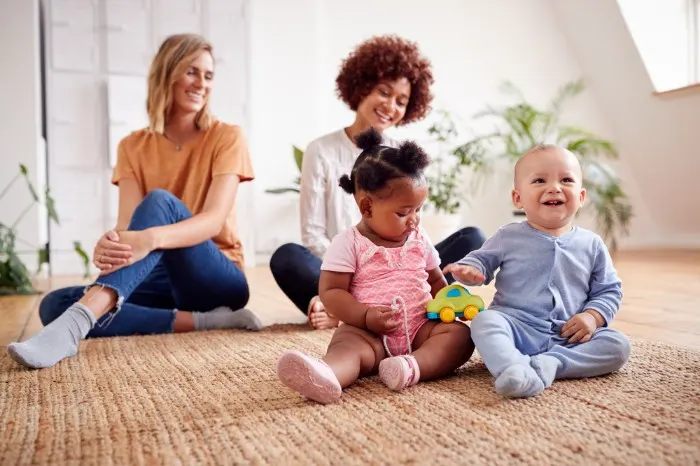
Simple Ways to Build Social-Emotional Skills During Play
Playtime is an important part of any toddler’s development, and it can be especially beneficial when it comes to building social-emotional skills.
Through play, toddlers learn how to interact with others, express their emotions in healthy ways, and develop problem-solving skills.
Here are some simple ways parents can use playtime as an opportunity to help their little ones grow emotionally and socially.
• Provide toys that encourage cooperation and sharing. You can help your child learn about sharing by using low-pressure strategies and modeling but sharing should not be an expectation until they are a bit older.
• Read stories together that help your toddler explore different emotions, such as joy or frustration. This is not only helpful for social-emotional development but also supports language skills.
• Talk about how your toddler is feeling at any given moment and provide encouragement to express their emotions in healthy ways. Using emotion cards or an “I feel” chart can be helpful as they learn emotional vocabulary.
• Participate in pretend play with them. You may need to model this first, but your toddler will soon join in. Using a stuffed animal to act out a scenario can work great.
• Play games that involve taking turns, such as tossing a ball back and forth or playing Simon Says. Help your toddler practice these skills at home before you try them out in environments with other kids.
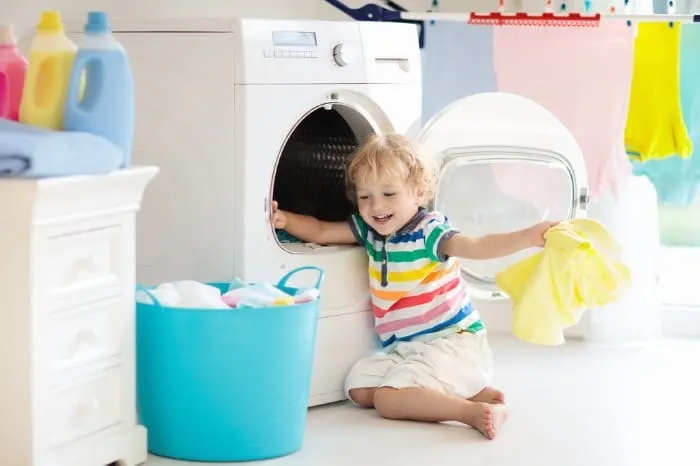
Help Them Develop Social-Emotional Skills Through Daily Routines
As toddlers grow, they are learning more about themselves and the world around them.
It is important for parents to help their little ones develop strong social-emotional skills during this time of growth.
One way to do this is through daily routines that provide structure and consistency while also allowing room for exploration and play.
By providing opportunities for children to practice problem-solving, self-expression, communication, cooperation, and other important life skills in everyday activities such as mealtime or bedtime rituals, you can help your child foster the development of these essential social-emotional competencies in their toddler.
For example, when you are reading books during your bedtime routine take a moment and talk about how the characters are feeling in the story.
You don’t have to have any sort of special book on social-emotional skills to do this…you can do it with any book!
Frequently Asked Questions about Social Development
Parents can help children learn social skills by engaging in conversations about feelings and emotions, modeling for them a few basic rules for polite behavior, and modeling good conduct during their day-to-day activities. Reading books can also be a great way to explore social skills and emotions.
It is very common for children to be shy as being in new environments can feel a bit overwhelming at times, even for adults!
When I look at my two children I had one that never really went through a shy stage or it was at least very minimal.
My other one was shy for a period of time but eased out of it around 3 to 4 years old.
Related Posts You will Enjoy
Try this if your Toddler is Throwing Food!
How to Deal with Toddlers Waking Up Too Early
Everything You Need to Know about Toddler Sleep Regression
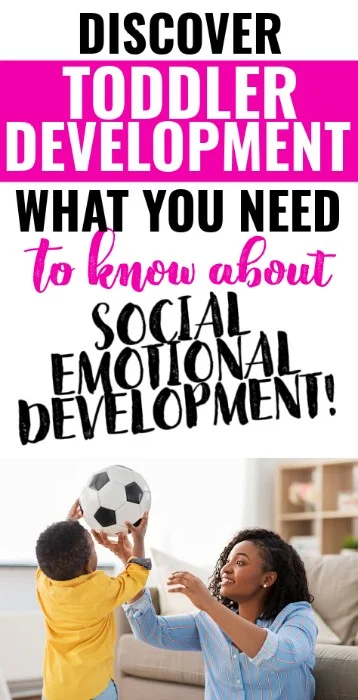

Kayla O’Neill has a master’s degree in education as well as a bachelor’s degree in special education with an emphasis in early childhood education. She has been working as a developmental therapist with babies and toddlers in early intervention since 2012. She is also a mom with two young children.
